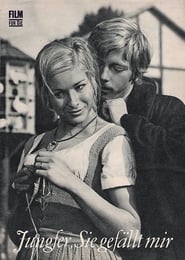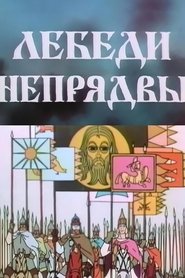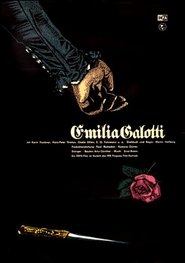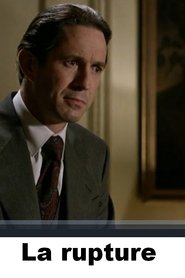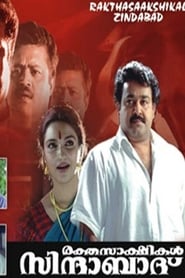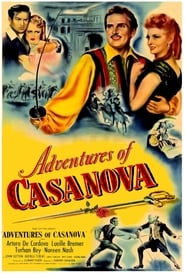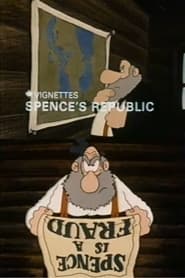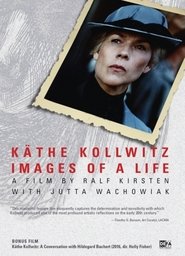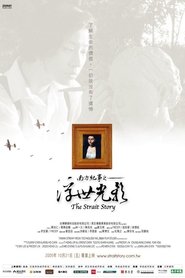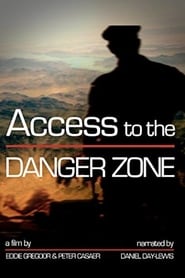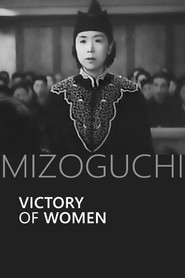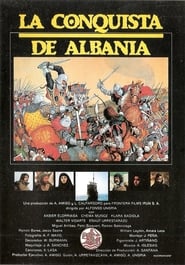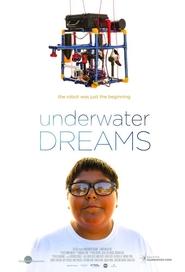Top Rated History Movies - Page 325
-
Maiden, You Please Me
1969
star 3.8A Saxon village in 1792: While the Prussians go against France, the haymaking takes place in the village and the resolute Marthe catches her daughter Ev with the village blacksmith Ruprecht in the hay. -
Swans of Nepriadva
1980
-
Emilia Galotti
1958
Emilia Galotti
1958
star 5The Prince of Guastalla falls in love with the young citizen Emilia Galotti, who is soon to marry Count Appiani. In order to win Emilia, the prince tries to send the count on an "honorable" journey on his behalf with the help of his chamberlain Marinelli. However, after the Count refuses this offer, Marinelli decides to have the wedding carriage robbed on his own initiative in order to have Emilia abducted to the Prince's nearby pleasure palace. But he has not thought of the prince's mistress, Countess Orsina, and Emilia's shaken father Odoardo, both of whom soon arrive at the castle, one to meet the prince, the other to look after his daughter... -
Mutig in die neuen Zeiten - Im Reich der Reblaus
2005
star 5.5Austria in the mid-1950s. Seamstress Elfi Redlich and her two children are about to emigrate to America with occupation officer Hal when her husband, missing for eleven years, returns home from Siberia. Factory owner Ulmendorff is deported to Russia on his way to his niece Valerie's wedding as a result of an intrigue by his employee Hasak. Hasak's joy is short-lived, as the Jewish owner of the factory asserts his ownership. -
La rupture
2013
La rupture
2013
star 6Upon the sudden death of President Georges Pompidou, the French right is taken aback. Who will succeed him? It is finally Valéry Giscard d'Estaing, aged 48, elected with the support of Jacques Chirac, who is then appointed Prime Minister. Their alliance seems strong, but it will quickly crack. -
Raktha Sakshikal Zindabad
1998
star 5.8Raktha Sakshikal Zindabad is a 1998 Malayalam film directed by Venu Nagavalli. The film stars Mohanlal, Suresh Gopi, Suganya and Murali in lead roles. -
Oldrich and Bozena
1985
Oldrich and Bozena
1985
star 2.7At the turn of the 10th and 11th centuries Boleslav's kingdom fell apart in the fratricidal war between the Přemyslovci and the other clans the main profiteer of this being the German emperor. At that time it seemed as if the Czech state and the lineage of its princes was awaiting its end..." It is with these words that the tale of this film begins, whose narrative is based upon the the play by František Hrubín of the same name. -
A Place Out of Time: The Bordentown School
2009
star 7.3For a seventy-year period, when America cared little about the education of African-Americans, and discrimination was law and custom, The Bordentown School was an educational utopia. An incubator for black pride and intellect, it taught values, discipline, and life skills to generations of black children. This is the story of that remarkable school, as told by Bordentown alumni, historians, and remarkable archival footage. It is also the story of black education in America across three centuries, presenting a nuanced, rarely seen portrait of a separate black space; and a much-needed preface to the growing national discussion about historically black institutions and their role in nurturing identity and accomplishment. What was lost and what was gained in the march toward equality? -
Adventures of Casanova
1948
star 5Casanova, a young patriot in 18th-century Sicily, upon learning that his father and sister have been murdered, returns to Palermo and engages in guerilla tactics against the forces of the Governor. Lady Bianca, the Governor's daughter, is in love with one of the patriots, Lorenzo, and desires to escape from the palace. Her lady-in-waiting, Zanetta, enlists the aid of Casanova and he rescues them and takes them to the partisan's camp. The rebels are victorious. Lady Bianca makes plans to marry Lorenzo, and Casanova and Zanetta have similar plans. -
Alexander The Great
1968
Alexander The Great
1968
star 5An historical film that follows the life of Alexander the Great, the Macedonian king that united all ancient Greek tribes and led them against the vast Persian Empire. Alexander conquered most of the then-known world and created a Greek empire that spanned all the way from the Balkans to India. -
Canada Vignettes: Spence's Republic
1978
star 4.7An animated vignette about the role of Thomas Spence in the formation and demise of the Republic of Manitoba at Portage la Prairie in 1867-68. -
Der Judas von Tirol
1933
Der Judas von Tirol
1933
star 5In the year 1810, the Tyrol is suffering under French occupation. A servant, who believes himself oppressed and disenfranchised by the peasants, dreams of being allowed to play Christ in the yearly Passion Play. Instead, he is forced to play Judas and soon the lines of reality blur: he betrays the location of Andreas Hofer, hidden by the farmers, breaks under the weight of his guilt and suffers Judas' fate. -
The Old and The Young King
1935
star 5.7The story of the stormy relationship between King Friedrich Wilhelm and his son, who later became known as King Frederick the Great of Prussia. -
Käthe Kollwitz – Pictures of a Life
1987
star 5Kathe Kollwitz was 47 years old, and already a well established artist in Germany and abroad when Peter, her youngest son, volunteered to join the German army in WWI and was killed two weeks later. This painful tragedy changed Kollwitz's life and art forever. -
The Strait Story
2005
The Strait Story
2005
star 2.7The year is 1943 and Taiwan is under Japanese colonization. After finishing his studies in Japan, famous Taiwanese sculptor and painter Ching-Cheng Huang receives an offer to teach in Beiping Art School. He decides to visit friends and family back home before leaving for China. He boards the passenger liner "Takachiho Maru" in Kobe, Japan, with his girlfriend, a pianist. Tragically, the luxurious liner is torpedoed by an American submarine and sinks off the coast of Keelung, Taiwan. Decades later, Shou-shou, a fine art restorer with a crippling illness, finds one of Huang's paintings in an exhibition. As she restores the painting, Shou-shou learns about the artist, the stories behind his work and his death at sea. She recreates the story of the painting "Woman in Black", and romantically imagines the ways the artist painted his girlfriend. The more she studies, the more she was inspired by Huang's value of art and of life. Restoring Huang's painting thus becomes Shou-shou's way of ... -
Dempsey
1983
Dempsey
1983
star 6Nominated for two primetime Emmy Awards in 1984, this made-for-TV movie follows the true story of American boxer Jack Dempsey, who became a media sensation in the 1920s as the world heavyweight champion. Based upon the book by Jack Dempsey and Barbara Piatelli Dempsey. -
Access to the Danger Zone
2012
star 6.3Directed by Peter Casaer and narrated by Daniel Day-Lewis, this documentary provides a harrowing look at the challenges of delivering humanitarian aid in armed conflicts. “Access to the Danger Zone” explores the strategies that Doctors Without Borders has employed to save lives in the world’s worst war zones, including Afghanistan, Somalia, and eastern Democratic Republic of Congo—strategies that are tested each and every day. Interviews with key experts from Doctors Without Borders, the International Committee of the Red Cross, and the United Nations are accompanied by dramatic footage shot in these countries in 2011 and 2012. -
Victory of Women
1946
Victory of Women
1946
star 6.5Representing a destitute mother in an infanticide trial, a female lawyer attempts to convince a conservative prosecutor of the benefits of Japan's democratized post-war legal system. -
La conquista de Albania
1983
star 4.7King Carlos II of Spain (r. 1665-1700) once sent his brother Luis to lead a military expedition into Albania and conquer that land for the Spaniards. Since Albania was a part of the dowry of Luis' wife, it seemed like a reasonable idea at the time. While that expedition and its final battle is the subject of this historical film, the scale involved can hardly do justice to the concept. The protagonists talk incessantly, and by the time they get down to the final grand battle, it turns out to be a skirmish between several dozen men. -
Underwater Dreams
2014
Underwater Dreams
2014
star 6.7Underwater Dreams, narrated by Michael Peña, is an epic story of how the sons of undocumented Mexican immigrants learned how to build underwater robots. And go up against MIT in the process.
 Netflix
Netflix
 Amazon Prime Video
Amazon Prime Video
 Apple iTunes
Apple iTunes
 Apple TV Plus
Apple TV Plus
 Disney Plus
Disney Plus
 Google Play Movies
Google Play Movies
 Paramount Plus
Paramount Plus
 Hulu
Hulu
 HBO Max
HBO Max
 YouTube
YouTube
 fuboTV
fuboTV
 Peacock
Peacock
 Peacock Premium
Peacock Premium
 Amazon Video
Amazon Video
 The Roku Channel
The Roku Channel
 AMC+
AMC+
 Kocowa
Kocowa
 Hoopla
Hoopla
 The CW
The CW
 Vudu
Vudu
 Starz
Starz
 Showtime
Showtime
 PBS
PBS
 Pantaflix
Pantaflix
 FXNow
FXNow
 Tubi TV
Tubi TV
 Kanopy
Kanopy
 Comedy Central
Comedy Central
 Crunchyroll
Crunchyroll
 Microsoft Store
Microsoft Store
 Redbox
Redbox
 Sun Nxt
Sun Nxt
 ABC
ABC
 DIRECTV
DIRECTV
 Crackle
Crackle
 Fandor
Fandor
 Plex
Plex
